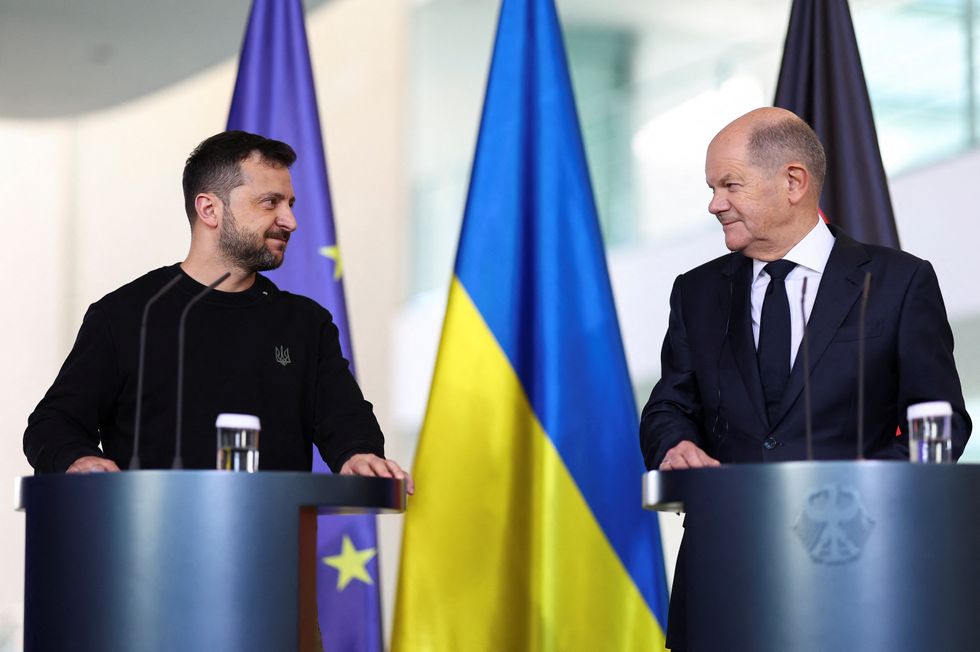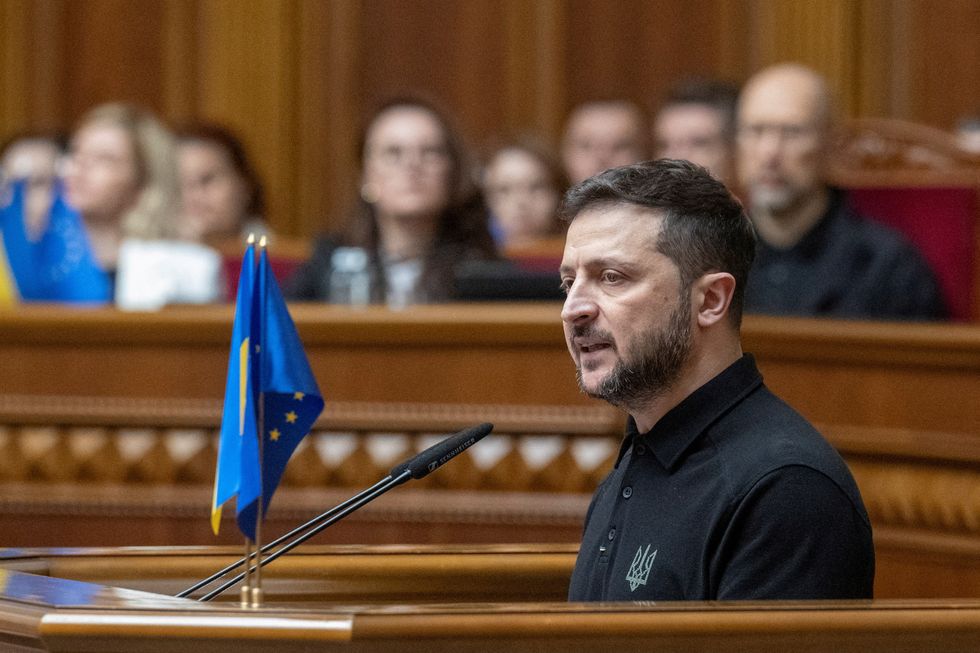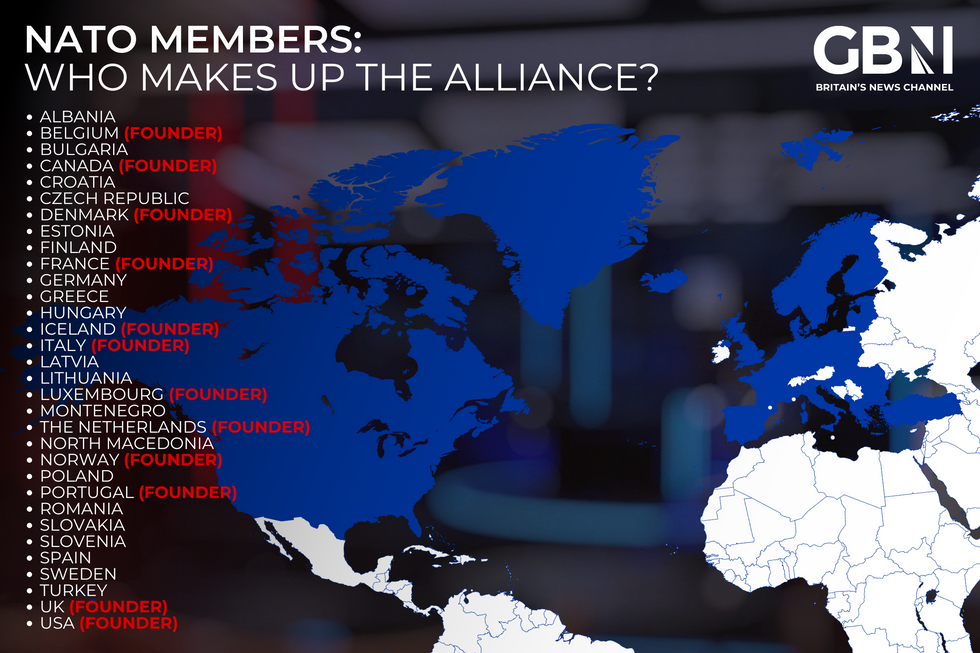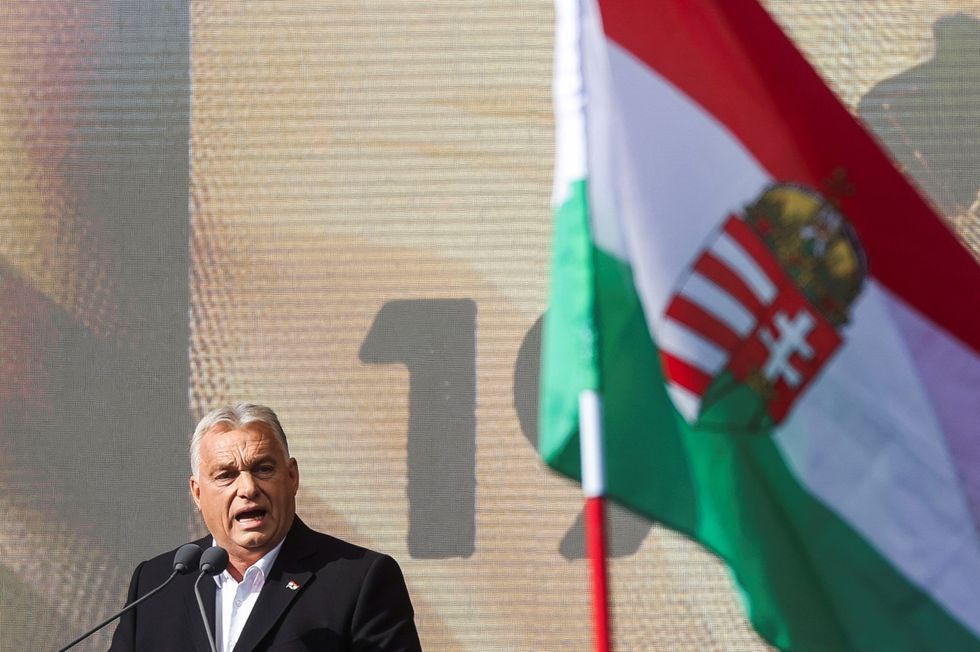James Saunders
Guest Reporter
German Chancellor Olaf Scholz has rejected Ukraine's bid for swift Nato membership, dealing a crushing blow to President Volodymyr Zelensky's much-hailed "victory plan".
In a candid interview with German broadcaster ZDF, Scholz bluntly stated that no country embroiled in a conflict could join the Western alliance - as Ukraine is seeking to do.
"It is important to realise that a country at war absolutely cannot become a member of Nato," he declared.
The Chancellor's stance extends beyond membership - he also reiterated his refusal to provide Kyiv with Germany's long-range Taurus missiles.

Scholz expressed concerns that increased support for Ukraine might drag Germany into direct conflict with Moscow, a risk he seems unwilling to take. His position marks the first public criticism of Zelensky's plan by a Nato leader.
But his comments have not been well-received by allies in the bloc.
A Nato source, speaking to The Telegraph, said the Chancellor's interview was "unhelpful" and "naive".
They criticised Scholz's position, saying: "It is misguided - many allies do see the need for Nato membership as a real deterrent for further Russian misadventures."
MORE ON UKRAINE:


The source also questioned Scholz's logic, arguing that his "constant fretting about the risk of triggering a direct conflict between Russia and Nato was "illogical", as "one cannot avoid that which is already taking place."
The Nato insider also fumed at Scholz's persistence in "banging the peace drum", even as Russia escalates its military efforts and continues to wage hybrid warfare on Germany.
But one Nato ally, Hungary, has heaped scorn on Zelensky's scheme.
Hungarian PM Viktor Orban, ahead of Zelensky's address, wrote: "Today President Zelensky will present his plan for victory. What he outlined yesterday in the Ukrainian parliament was more than frightening," adding that instead of sending more weapons to Ukraine, a ceasefire and peace negotiations were needed.
Scholz's stance on Ukraine's Nato membership and military support appears to be influenced by domestic pressures - with German voters growing weary of the ongoing conflict in Ukraine, the already unpopular Chancellor cannot afford to ignore his country.

Meanwhile, the more Kremlin-friendly AfD (Alternative for Germany) party is gaining significant traction, particularly in the ex-Communist East.
With federal elections looming next year, the Chancellor is under intense pressure to appease the electorate.
His cautious approach to Ukraine's Nato aspirations and military aid may be an attempt to strike a balance between international commitments and domestic concerns.
Rafael Loss, a German defence and politics expert at the European Council on Foreign Relations, suggested the Chancellor is likely trying to project an image of himself as a "besonnen" leader ahead of next year's elections.
"Besonnen", a German term for prudence and clear-headedness, has so far been the image Scholz wants to project of himself since the start of the war.
The SPD, Scholz's centre-left party, employed this narrative during the European elections in June - but then recorded its worst-ever European election outcome.
Scholz might stick with his "besonnen"-ness in an attempt to position himself as a steady hand in turbulent times.
But with the AfD on the rise, appealing to a war-weary Germany might be his last roll of the dice.
Find Out More...
In a candid interview with German broadcaster ZDF, Scholz bluntly stated that no country embroiled in a conflict could join the Western alliance - as Ukraine is seeking to do.
"It is important to realise that a country at war absolutely cannot become a member of Nato," he declared.
The Chancellor's stance extends beyond membership - he also reiterated his refusal to provide Kyiv with Germany's long-range Taurus missiles.

Scholz expressed concerns that increased support for Ukraine might drag Germany into direct conflict with Moscow, a risk he seems unwilling to take. His position marks the first public criticism of Zelensky's plan by a Nato leader.
But his comments have not been well-received by allies in the bloc.
A Nato source, speaking to The Telegraph, said the Chancellor's interview was "unhelpful" and "naive".
They criticised Scholz's position, saying: "It is misguided - many allies do see the need for Nato membership as a real deterrent for further Russian misadventures."
MORE ON UKRAINE:
- Inside Ukraine's cutting-edge approach to warfare including use of drones, hackers and memes
- Trump publishes Zelensky's personal message pleading for meeting
- UK weapon stockpiles left ‘threadbare’ after arming Ukraine for 2.5 years


The source also questioned Scholz's logic, arguing that his "constant fretting about the risk of triggering a direct conflict between Russia and Nato was "illogical", as "one cannot avoid that which is already taking place."
The Nato insider also fumed at Scholz's persistence in "banging the peace drum", even as Russia escalates its military efforts and continues to wage hybrid warfare on Germany.
But one Nato ally, Hungary, has heaped scorn on Zelensky's scheme.
Hungarian PM Viktor Orban, ahead of Zelensky's address, wrote: "Today President Zelensky will present his plan for victory. What he outlined yesterday in the Ukrainian parliament was more than frightening," adding that instead of sending more weapons to Ukraine, a ceasefire and peace negotiations were needed.
Scholz's stance on Ukraine's Nato membership and military support appears to be influenced by domestic pressures - with German voters growing weary of the ongoing conflict in Ukraine, the already unpopular Chancellor cannot afford to ignore his country.

Meanwhile, the more Kremlin-friendly AfD (Alternative for Germany) party is gaining significant traction, particularly in the ex-Communist East.
With federal elections looming next year, the Chancellor is under intense pressure to appease the electorate.
His cautious approach to Ukraine's Nato aspirations and military aid may be an attempt to strike a balance between international commitments and domestic concerns.
Rafael Loss, a German defence and politics expert at the European Council on Foreign Relations, suggested the Chancellor is likely trying to project an image of himself as a "besonnen" leader ahead of next year's elections.
"Besonnen", a German term for prudence and clear-headedness, has so far been the image Scholz wants to project of himself since the start of the war.
The SPD, Scholz's centre-left party, employed this narrative during the European elections in June - but then recorded its worst-ever European election outcome.
Scholz might stick with his "besonnen"-ness in an attempt to position himself as a steady hand in turbulent times.
But with the AfD on the rise, appealing to a war-weary Germany might be his last roll of the dice.
Find Out More...